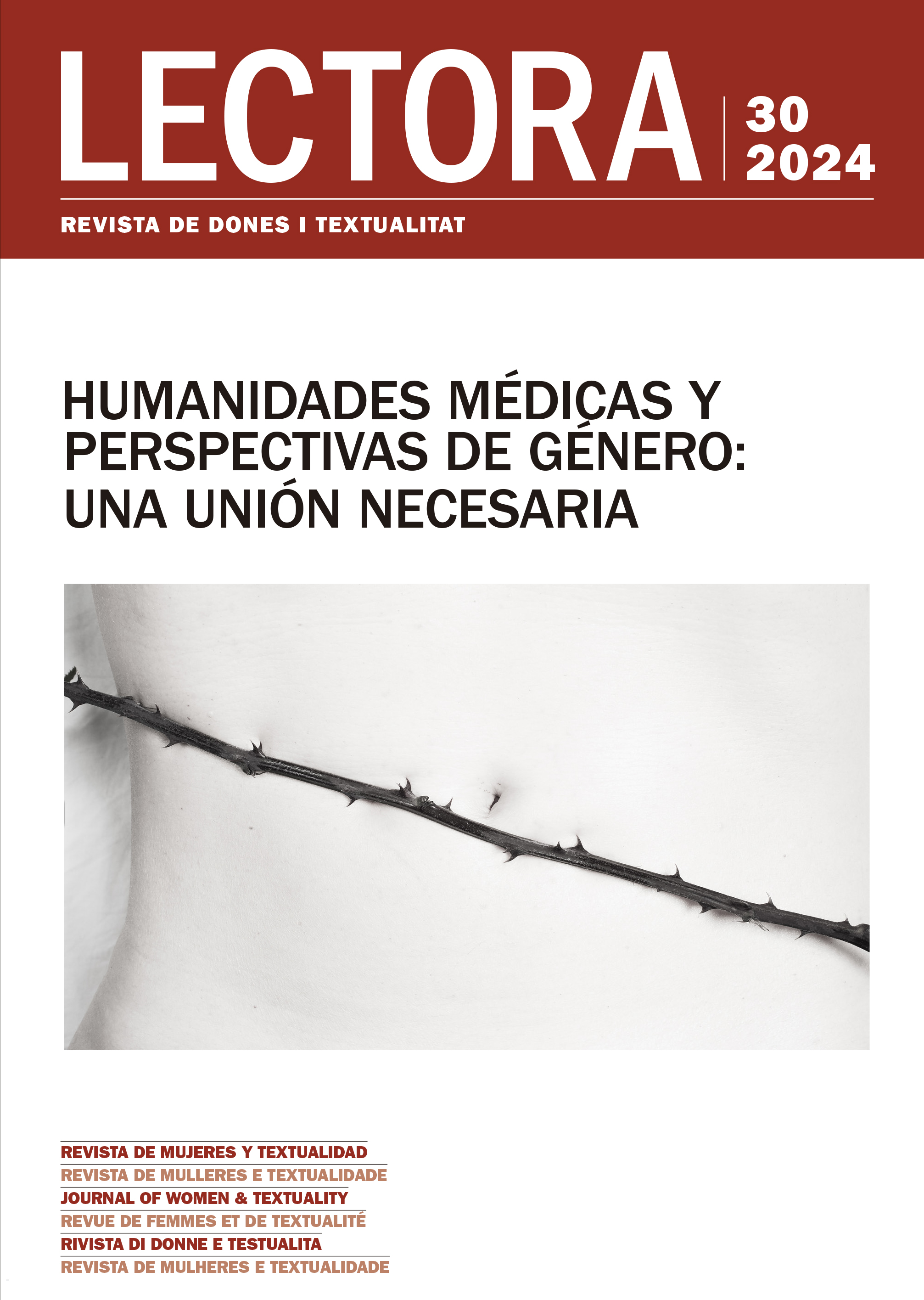El alcance de las humanidades médicas en la era post-COVID-19: ¿Más allá del género?
DOI:
https://doi.org/10.1344/Lectora2024.30.1Keywords:
medical humanities, gender, post-COVID-19 eraAbstract
This article is based on the following research question: Is the gender perspective important in the field of the medical humanities in the post-COVID-19 era? The significance of this issue is indicated by the prominence of the climate crisis in current debates about public health, especially following the COVID-19 pandemic and within the context of the so-called “era of extinction”. As such, it is therefore necessary to gauge whether gender remains a priority on the medical humanities agenda, or whether in fact the debates about planetary health have contributed to a setback in terms of the visibilisation of women’s bodies within social perceptions of illness in the twenty-first century. With the aim of responding to this question, this work is structured in three distinct parts: firstly, there is a, necessarily brief, overview of the main aims and scope of the medical humanities and how they intersect with a gender perspective. Secondly, a short outline of literary production written during and/or about the lockdown and first wave of the pandemic in Spain, which will serve as an example that is extrapolatable to other cultures and which will demonstrate the persistence of the feminist perspective on perceptions of the global health crisis. This part of the article will include a brief overview of the academic and creative works of this monographic issue for Lectora, since each article contributes in some way to answering our research question. And thirdly, the work will end with some personal reflections on the experience of illness from women who work in contemporary university settingsDownloads
Published
How to Cite
Issue
Section
License
Copyright (c) 2024 Luz Mar González-Arias

This work is licensed under a Creative Commons Attribution-NonCommercial-NoDerivatives 4.0 International License.
The Author retains ownership of the copyright in this article and grants Lectora: revista de dones i textualitat the rights to print publication of the Article. The work will be available under a Creative Commons Attribution-Noncommercial-No Derivative Works license, by which the article must be credited to the Author and the Journal be credited as first place of publication.
The Author is free to enter in seperate, additional contractual agreements for the non-exclusive distribution of the work as published in this journal (such as institutional repositories or a book), as long as the original publication in Lectora is credited.
The Author is encouraged to post the work online (eg in institutional or thematic repositories, or in their website), as it can lead to productive exchanges as well as to a greater citation of the published work (see The Effect of Open Access).




